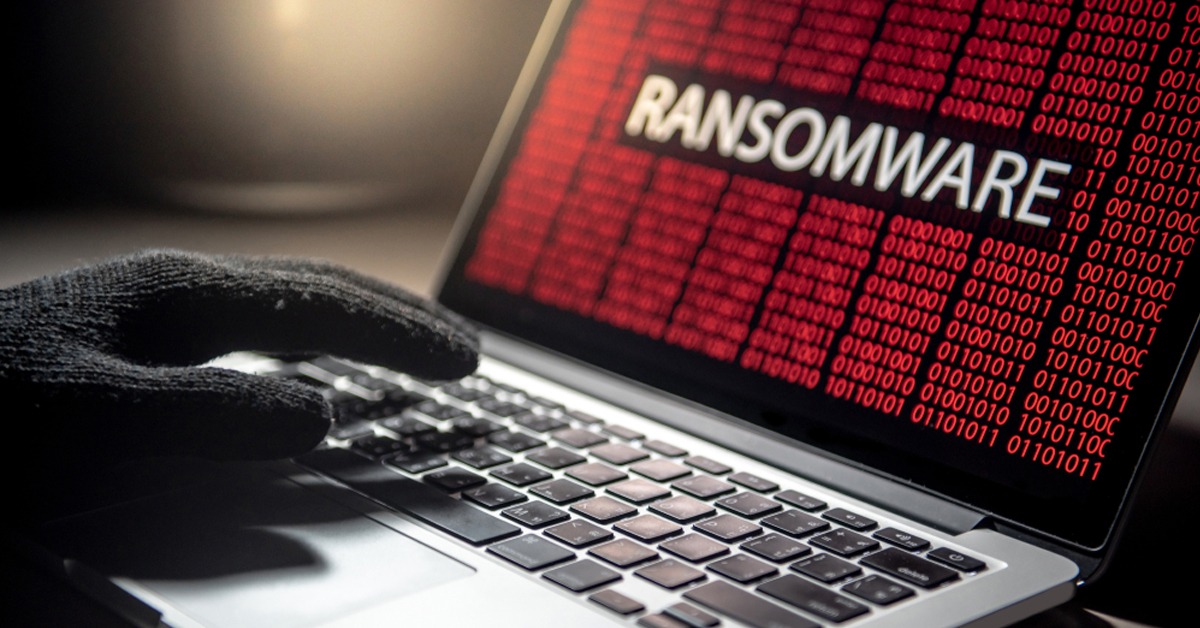
Ransomware attacks can shut down your business for inconvenient periods of time, permanently damage your reputation, and open the door to more unfortunate yet preventable data breaches.
A ransomware attack can be devastating to your business.
Ransomware has become such a big issue for private companies that even the White House is getting involved. Earlier this month, the White House issued a statement that stated:
“The Federal Government is stepping up to do its’ part, working with like-minded partners around the world to disrupt and deter ransomware actors…The private sector has a critical responsibility to protect against these threats.”
Wow. When Uncle Sam gets involved, it must be important.
What is ransomware and how can your business prevent it?
Ransomware is a type of malware that encrypts or locks the data on your hardware or network.
Once infected, the attackers (aka, ransomware actors) demand a monetary ransom in exchange for a unique key to unlock your files. Here are a few common ways that ransomware can get into your network and disrupt your end users:
- When one of your employees clicks a corrupt link or attachment.
- When someone inside your company clicks on some sort of ad that leads to a website with an exploit kit.
- When someone in your office uses an infected piece of hardware.
- OR via a phishing email, which is by far the most popular among hackers.
Phishing emails use social engineering to encourage someone inside your company to click a link, download an attachment, or reply to some sort of link that takes them to an infected website. If your employee falls for the phishing trick, the malware silently installs on their device.
Once the ransomware is inside your network, it spreads to all your connected systems where it searches for valuable data to steal. If the ransomware encrypts your data, you will receive a note that demands payment in exchange for the decryption key.
If you do not pay up, they threaten to destroy the key, destroy your data, or leak sensitive data.
When you have a proven, strategic IT process, however, many of these risks are eliminated. An effective IT process ensures your users, data, and network is safe.
Here are the eight ways that a mature, strategic IT process helps you avoid ransomware issues.
- Create a culture of staff awareness – Your team must know the importance of strong passwords and multifactor authentication because employees are the most vulnerable for a ransomware attack. Organize regular security awareness trainings that explain the role staff play in preventing ransomware attacks.
- Firewalls, firewalls and yes, more firewalls – This is the first software-based line of defense against ransomware.
- Run regular security tests – Vulnerability assessments allow you to check for weaknesses while coming up with a strategic plan to solve them.
- Strong password security – Your team must know the importance of strong passwords.
- Keep your software patches updated – Ransomware exploits cybersecurity loopholes within your company’s software. Keep your software versions current.
- Improve your email security – Email security best practices are crucial to protecting against phishing and social engineering traps.
- Bring-your-own-device (BYOD) policies – Unregulated devices pose unnecessary risks to your network. You MUST create a fully segregated “guest” WIFI network if you want to provide access for vendors, clients, and other unknown visitors. Allowing visitor’s into the production network is asking for trouble.
- Cybersecurity Insurance – in the wake of high profile ransomware attacks on US companies, most companies are seeking cybersecurity insurance. Equally important is ensuring that you adhere to and maintain your compliance with your cybersecurity insurance. This is where a credible IT provider comes in hand. Learn more here.
Remember, 70% of regulated financial service firms reported that a successful IT strategy helped avoid issues like data loss and ransomware.
Things like advanced endpoint security and detection technology prevent sophisticated cyber risks because they require sophisticated security to combat them. Your office environment and remote users should be protected with advanced EDR based endpoint security (formerly known as antivirus) and network threat detection technologies.
Not to mention that over 81% of IT professionals that were surveyed said the pandemic has increased reliance on technology to manage threats like ransomware while easing concerns.
We’d love to talk to you about your process in preventing the tragic results that can come from not being prepared for ransomware.
